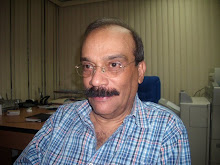 Aerial view of the Capitol Hill [1]
Aerial view of the Capitol Hill [1]The economics is not an autonomous discipline. It is subordinated to the politics. The most important economic decisions ---in all the countries--- are adopted by the politicians, this means, by the governments and not by the economists neither the economic sectors.
For example, the basic economic decision, that is the type of economic model that each society choose ---Free Market, Mixed Economy, Socialism or Communism--- is decided by the political factors of the countries. Obviously, they are influenced by the economic factors but these do not determine the definitive course of the economic policy.
The political factors ---governments and political parties-- represent the most powerful sectors of each society; they are the first power followed by the armed forces, the economic sectors, the mass media and the workers. Those are the real power of the society. They determine the composition of the formal powers.
After the political factors, the military power is the most important in all the societies: in the democratic advanced countries and in the rest of the political systems. It is hypocrisy to say other thing. In a first impression this seems not be true but in the reality that is the true. The following example illustrates very well this appreciation.
I remember to have read how ---in the days before the Pearl Harbor attack on December 7, 1941--- Washington warned to the Pacific Ocean Fleet about the imminence of the war. In the final days of November of that year the Secretary of State, Cordell Hull, said to the Secretary of War, Stimson that he had abandoned the negotiations with Japan and that since that moment the situation would be in the hands of the military forces. [2]
What means this? This means that Hull recognized that the time of the politics and the diplomacy had ended and the time of war was beginning.
In the democratic societies normally the armed forces do not participate in the politics. But an opinion of the armed forces in regard to any important affair is something that the structure of power can not disdain.
How the politics dominate the economy?
The laws of the economy are intellectual abstractions because in the reality the politics determines all the economic behavior in all the types of economic regimes.
The politicians, it means, the political parties and governments, are who decide the big economic policies; those are:
- The monetary policy (the value of the currency and the amount of liquidity in the economy)
- The financial policy (rates of interest)
- The fiscal policy (taxes, exemptions, including the bailouts to the banks)
- The commercial policy (regime of imports and exports)
- Wages Policy (minimum salary)
- Policy of prices (control or not)
- Agricultural policy
- Industrial policy
- Energetic policy
- Environment policy
The question is: what does really decide the private economy?
All the laws and rules that determine the economic behavior are decided by the governments. In consequence, the economy is a dependent discipline which laws and action in last instance depends of the politics factors.
Conclusion: these concepts might be the elements of a different theory of the power: the Theory of the Political Supremacy.
[1] Photo source: Commons.wikimedia.org/Wiki/file:aerial_view_o…
This work is in the public domain in the United States because it is a work of the United States Federal Government under the terms ofTitle 17, Chapter 1, Section 105 of the US Code. See Copyright.
[2] Daniel Yergin. La Historia del Petróleo. Page 428. Javier Vergara Editor. Buenos Aires 1992.









